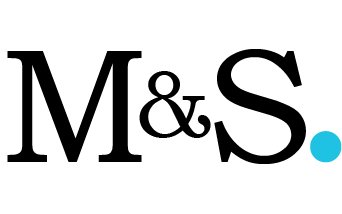Verification vs. Certification
Our take to assist organisations that are considering the different options for carbon footprint assurance available at McHugh & Shaw.
Carbon footprint assurance
Many organisations measure the carbon footprint of their organisation. A carbon footprint refers to the greenhouse gas emissions (GHG) in terms of metric tonnes of carbon dioxide equivalent (tCO2e) generated. It is accepted good practice to have this footprint assured (verified/validated/audited). Assurance by an independent third party such as McHugh & Shaw provides confidence that any reporting provides an accurate depiction of the greenhouse gas emissions and removals of the organisation.
Independent assurance by McHugh & Shaw
Independent assurance conducted by McHugh & Shaw confirms that the organisation has measured its greenhouse gas emissions in accordance with the relevant standard (often the International Standard ISO 14064-1 or GHG Protocol). These standards are currently the most widely used and recognised standards for organisations internationally, and ISO 14064-1 is the basis for the guidance from the Ministry for the Environment for voluntary and compliance reporting.
Our assurance work is completed using the International Standard ISO 14064-3 as the framework. This Standard specifies the principles, requirements and guidance for those conducting GHG audits and other environmental information. The outcome of the audit is an assurance statement.
McHugh & Shaw provides a unique offering in New Zealand. Our assurance service is an option for organisations that:
prefer a personalised approach from an experienced team;
are undertaking voluntary reporting;
are undertaking mandatory reporting for the Carbon Neutral Government Programme or Aotearoa New Zealand Climate Standard NZ CS1;
are in the initial years of measurement and want to ensure they have a complete and accurate baseline inventory;
do not require a certification from an ISO 14065 accredited provider.
Non-accreditation
McHugh & Shaw does not offer accredited certification to ISO 14064-1 or the GHG Protocol. This means that McHugh & Shaw has not been accredited by JAS-ANZ to issue accredited certificates and does not provide certification marks (logos). You can, however, make the claim that the inventory has been independently assured. The assurance statement is provided at the completion of the audit. The statement can be used when evidence of assurance is requested by an interested party or to meet disclosure requirements.
It is important that the decision to have a non-accredited assurance work considers several factors including the reason why you are seeking assurance of your carbon footprint and what marketing claim you plan to make. New Zealand has specific requirements under the Fair Trading Act[1] when making environmental claims which need to be met.
Certification providers
If your organisation decides that it would like certification from a carbon programme that is not JAS-ANZ accredited but still has a quality system in place, then the current providers in New Zealand include:
EKOS – provides certification including a logo that can be used for marketing purposes as well as certified carbon credits (offsets) that are generated from their own carbon forest project supply chain.
If your organisation decides that it is important for certification to be carried out by a JAS-ANZ accredited provider[2] then the current providers in New Zealand include:
Toitū Envirocare – provides JAS-ANZ accredited certification including a certification mark (logo) which can be used for marketing purposes.
It is also important to acknowledge that accounting firms such as Deloitte, PWC, EY, KPMG and Opportune provide carbon assurance services in Aotearoa New Zealand. The assurance is completed in line with the International Standard on Assurance Engagements (New Zealand) 3410: Assurance Engagements on Greenhouse Gas Statements (‘ISAE (NZ) 3410’), issued by the New Zealand Auditing and Assurance Standards Board. This option can work well for publicly listed companies already engaged with one of the big firms for financial services.
Please contact us to discuss your requirements.
Jeska McHugh
MD & Assurance Lead
Email: info@mchugh-shaw.co.nz
Last updated October 2023
[1] Information regarding your responsibility when making environmental or carbon claims under the Fair Trading Act is available on the New Zealand Commerce Commission’s website. It is important to read this information before making an environmental claim. If you are making a claim outside of New Zealand then check the legal requirements for that country. Organisational certification logos cannot be used on products.
[2] There are other accreditation bodies internationally e.g. IRCA, UKAS, ANSI etc. There could be an overseas-owned audit company holding accreditation with a provider other than JAS-ANZ.

